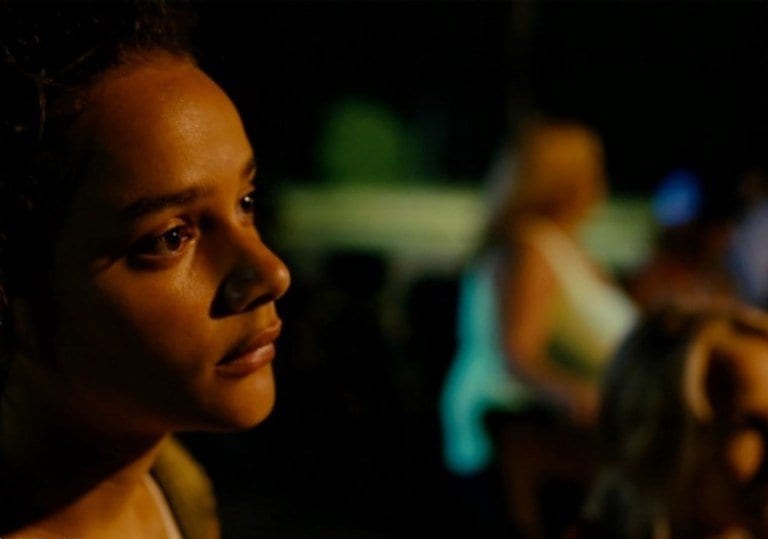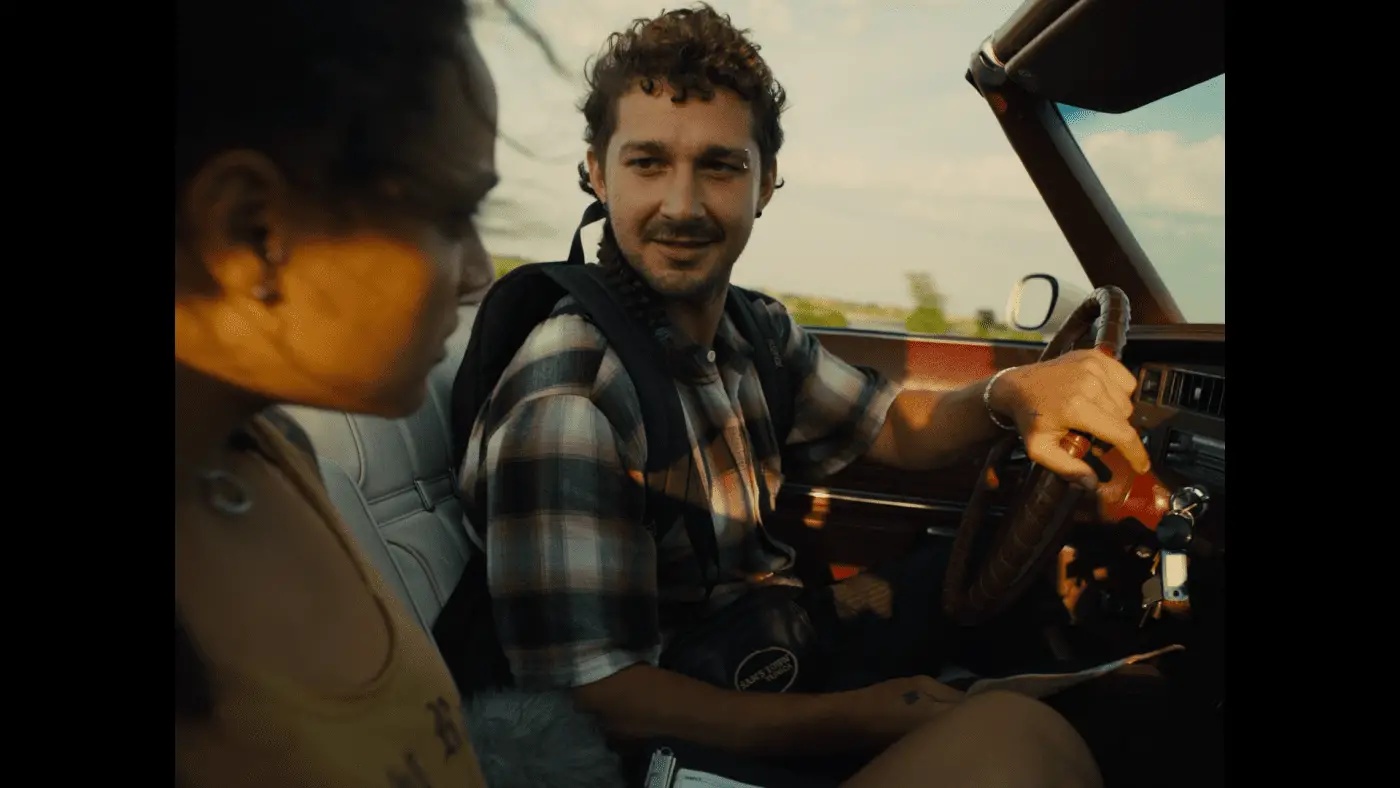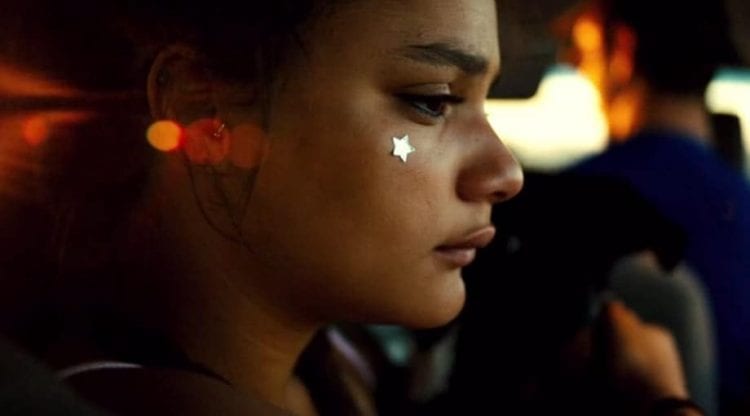Andrea Arnold exceptionally captures the reality of low-income youth and the realities that brings in her 2016 film, American Honey. Distributed by A24, American Honey follows a group of misfits who all come from the same impoverished backgrounds and are fortunate enough to have found some sense of a collective in each other, as they travel by van selling magazine subscriptions as a means of sustenance. Arnold juxtaposes images like searching for food in a dumpster with the extravagant houses the group visits in hopes of selling their magazines as a commentary on class and its structurally-based inequality. The young people that comprise the group of “power agents” have been systematically marginalized, each in their way, while the children whose lavish houses they visit owe nothing to the financial security they enjoy except for an accident of birth. In addition to coming from poverty-stricken backgrounds and often neglectful or drug-abusing families, the reality that many have come from experiences of sexual assault, as well, paints a devastating picture. This collective of individuals with painful pasts and uncertain futures creating a community, a family, and a way out amongst each other shows the power in sharing space with other human beings and the uplifting strength that comes with knowing we are not alone in our struggles.

“Are we invisible?” Star (Sasha Lane) asks half to herself and half to the young children with whom she is trying to hitchhike after scrounging around in the dumpster looking for something to feed everyone for dinner that night. Sure, in that moment, Star is only lamenting that none of the passing cars will give them a ride home, but she also belongs to a subset of the population that has been neglected by everyone around her who can make a positive impact in her life, leaving one in that situation to wonder if anyone can even see them. It is never made clear who these children are with whom Star lives, and we learn that her mother died a few years prior from a drug overdose. The man with whom they all live—who seems to be the father of the two children—not only belittles Star at every opportunity but also sexually abuses her, as well. The ambiguity only adds to her story, as the audience can recognize that Star’s story is not, unfortunately, unique and that many across the globe share a similar fate. Therefore, it is not as essential to make such hardline distinctions, because leaving the details hazy reminds us that this story is one shared by many.
Desperate for a way out but never expecting one to present itself, Star is intrigued by an offer made by Jake (Shia LaBeouf), a suspender-clad guy who catches Star’s eye while dancing on the register at K-Mart. When she follows him outside to return his phone to him that he dropped after security tells his entire group to leave the store, he entices her with an offer she cannot refuse—to accompany them to Kansas City and join their sales team. After deliberating between staying and taking care of the children whose mother abandoned them and leaving to protect herself, Star eventually decides to give her own life a chance and get away from the toxic situation that had consumed her. Star knew that no matter how risky this opportunity was, traveling across the country with perfect strangers presented no worse of an outcome than the life she experienced every day. With this group and their collective goal and company, at least Star would have something to believe in and to strive for no matter how long it would end up lasting.

“I don’t know, no one’s ever asked me that before” is all Star can muster when one of the potential magazine purchasers asks her what are her dreams. Star has lived a life devoid of the possibility of having goals or ambitions because her daily energy was spent finding ways to simply survive. For Star, after she takes a minute to think about it, her dreams are modest and include having her own trailer, as living alone would ensure that she would at least have agency over her own body. Star also reveals that she would like to have a lot of children, which is not surprising given the selfless way she acts anytime she encounters a young child. Star knows all too well what the reality of the future most likely entails for these children, and she will go out of her way to provide even a brief respite from the realities of their constant struggle. Reminiscent of the way Harriet Andersson’s character in Summer with Monika runs away to engage in a reckless affair with a new boyfriend and escape her own position of neglect and sexual abuse, Star can’t get out of her rodent-infested house fast enough because the risks of staying outweigh those of leaving. Her present situation offers no hope, and the chance to make some money and have a means to achieve independence and power over her own being present the only way Star can stop the cycle of violence and oppression into which she was born.
Before I could conceptualize conceiving a proper write-up on American Honey, I knew that this kind of film was the reason why I love movies so much. I remarked shortly after seeing the film for the first time that it was infused with so much life that it was the type of film that “breathed.” Movement and the uninhibited passion of adolescence, coupled with the desperate struggle to make a living for oneself when you start so far behind the eight-ball, punctuates every beat of the film. The communal scenes when the group drives from city to city, while singing and dancing to the music that fills their van, is an electric illustration of the constant movement of their minds and the rapid shifts that come with having to work so diligently to survive. There is never a day off for them, as that would mean lost opportunities and the possibility that they will go hungry or have no place to sleep for the night. The interactions displayed throughout the film between themselves, strangers, possible customers, and the various animals they encounter along the way also show how organic the film is, constantly infused with living beings and shared interactions.
These synergies also go a long way to humanizing the struggle of the underprivileged. It is so easy, and unfortunately common, for the struggles of those deemed to be beneath our position in life to be looked down upon as less than human. How often in casual conversations are the homeless assumed to be at fault for their place in life or believed to be someone that will exploit people for money only to feed an assumed drug habit? The banded group with which Star surrounds herself go out of their way to look after each other, rescue an abandoned dog they come across, and are warm and accepting to each other despite an entire world who has turned its back on each of them. Arnold’s exacting direction has reminded viewers that ones place in the world shouldn’t define them, and limiting others to the expectations we have put on them is no way to share in the human experience.

Star seems desperate to make a life for herself on her own terms. In each endeavor she pursues, she moves forward, in her way, committed to maintaining a sense of self-pride that she won’t let anyone steal from her. Whether she climbs into the cab of a trucker or accompanies a car full of cowboys to their house to watch them cook steaks as she tries to sell her magazines, Star maintains a laser focus on what she will and won’t do to maintain her sense of dignity. Too much has been stolen from her in her young life and now that she is finally in control of her body, she intends to maintain that control. Star has a big heart and a way of relating to people that is unconventional but gets to the heart of human connection. She shares such a kinship to the underdog that we see her even rescue bugs through various parts in the film. Star embodies the “least of these models” that the Christians with whom they come into contact claim to champion, despite shutting the door in the faces of even self-proclaimed impoverished youth.
When Star’s group rides into a low-income neighborhood, Star sees the exact kind of house and circumstance from which she fled and is unable to attempt any magazine sales. When Star happens upon a house with three children fending for themselves while their mother sleeps on the couch next to a pipe, Star likely recalls her childhood, as well as the children she left behind with a mother that didn’t want them. Star gives them more attention than they’ve probably enjoyed in a long time while she listens to one of them sing and gives another a pin from her bag. She then goes grocery shopping for them after noticing their barren refrigerator, proving that she will always have a place in her heart for the struggle she escaped that defined her life. Star is determined not to be characterized by the adversity she has experienced while traveling through life with an open heart, despite the negativity that has continuously been directed to her.
Andrea Arnold’s rich attention to detail and effortless direction with an extreme commitment to realism makes American Honey a phenomenal piece of cinema. She clearly understands the unbridled resilience of adolescents and presents the strength in unity of the abandoned on-screen. Reminding the audience every step of the way where these young people have come from, Arnold provides glimpses of poverty throughout the film. Whether it be outside of hotel parking lots or down the streets they confront as they walk door-to-door, Arnold constantly recalls the power in taking control of their own destiny that this group has decided to harness. Andrea Arnold captures the realities of the struggle of poverty and classism in a way that Martin McDonagh only wishes he could. His reductive view of class and poverty in his unfortunate 2017 film Three Billboards Outside Ebbing, Missouri is the antithesis to the reality harnessed by Arnold.
Arnold also makes a statement on religion, ever so subtly, throughout the film. The ones we see discard Star and her group the most are those that tout their faith on their bumper stickers and their Jesus bobbleheads. Less a condemnation of organized religion, it seems as though Arnold is calling into question those that proclaim to live their life in a way that boasts an acceptance and appreciation for all human life but that, in practice, discards those that are “not worthy” of their charity. Despite the hypocritical people that look down on her or those that seek to take advantage, the film ends with an uplifting hope regarding Star’s future. As she sets a frog free in a lake, she decides to submerge herself in the water, only to powerfully rise above the surface in what seems to indicate that despite all the forces in life that have tried to hold her down, Star will overcome all obstacles with her sense of self intact. Just as the lyrics of the song that inspired the film’s title suggest “There’s a wild, wild whisper Blowin’ in the wind” that compels Star and keeps her going through all of life’s difficulties like American Honey.



